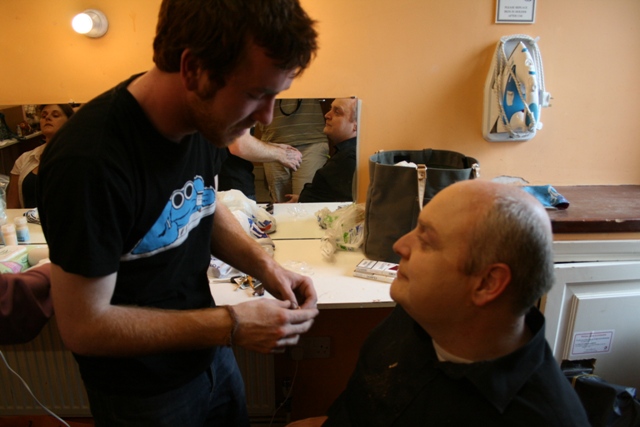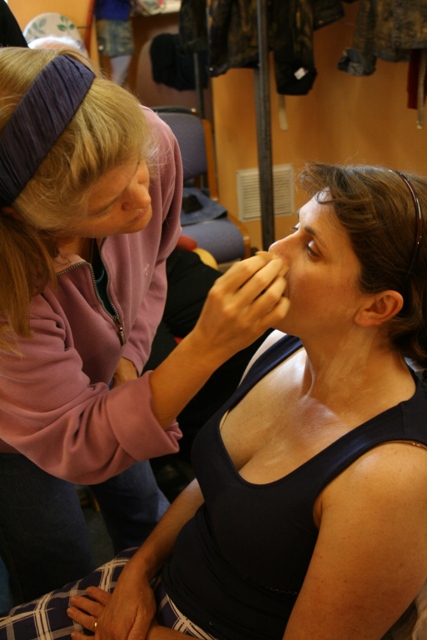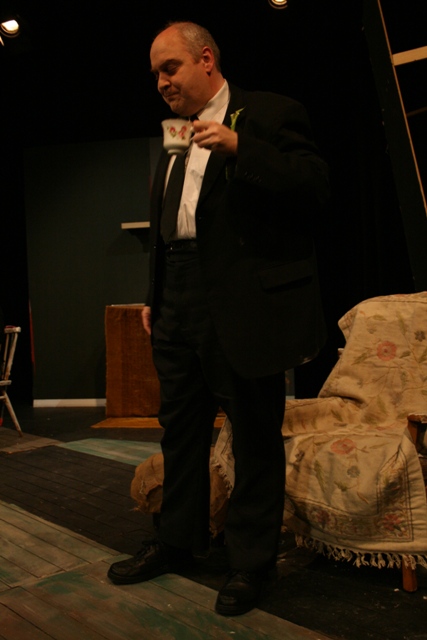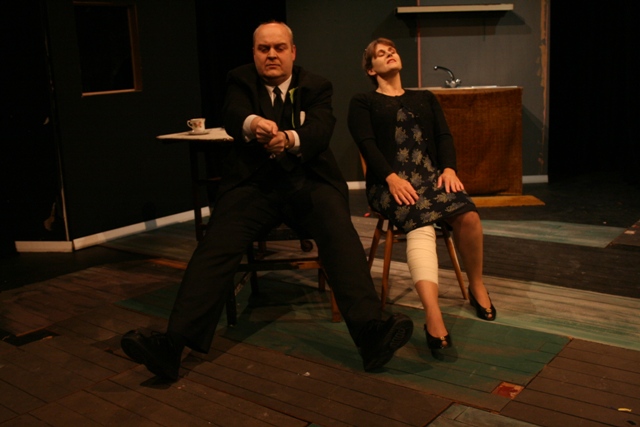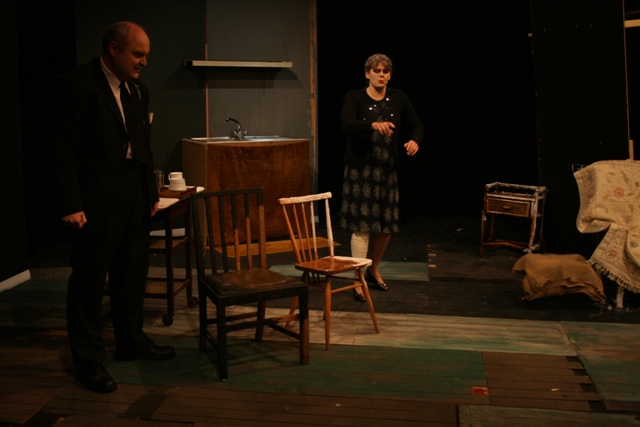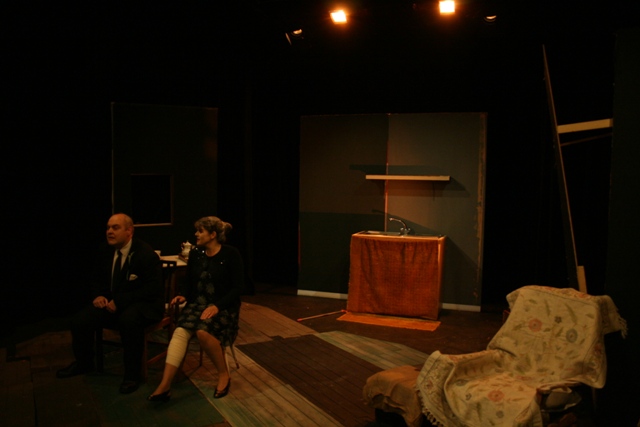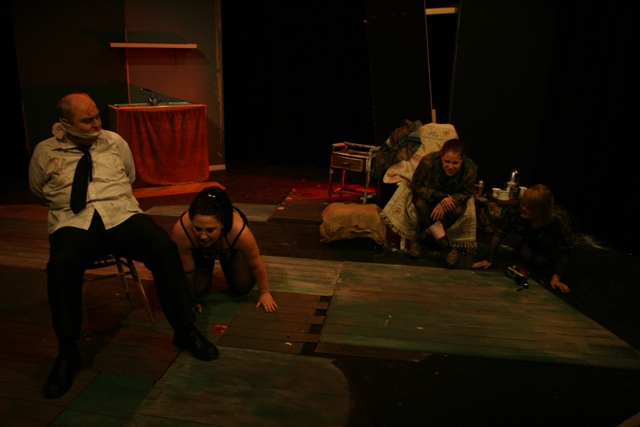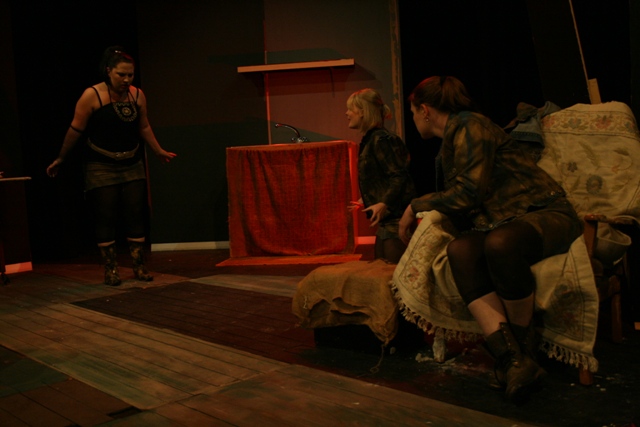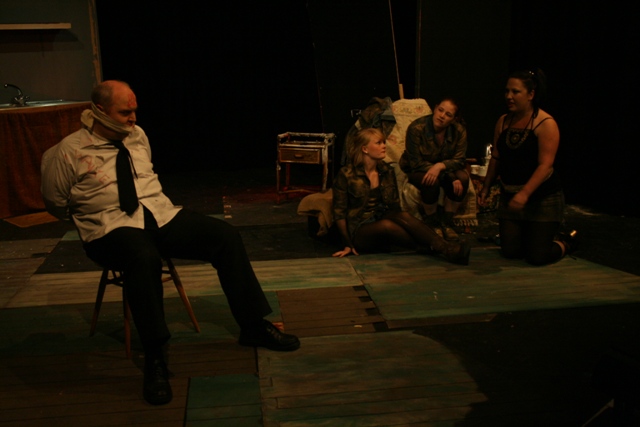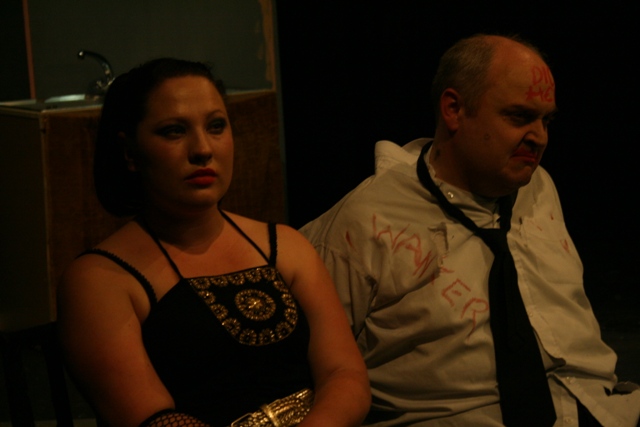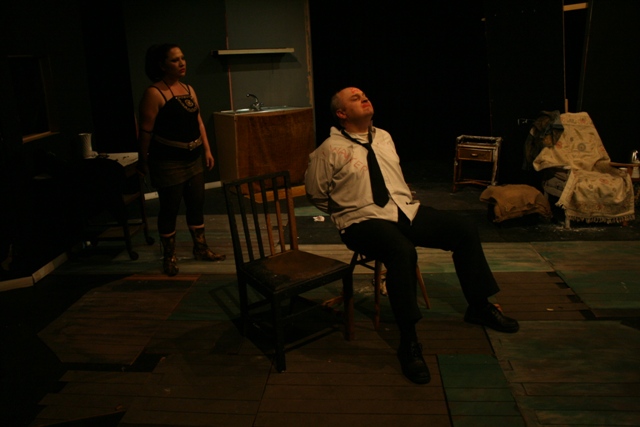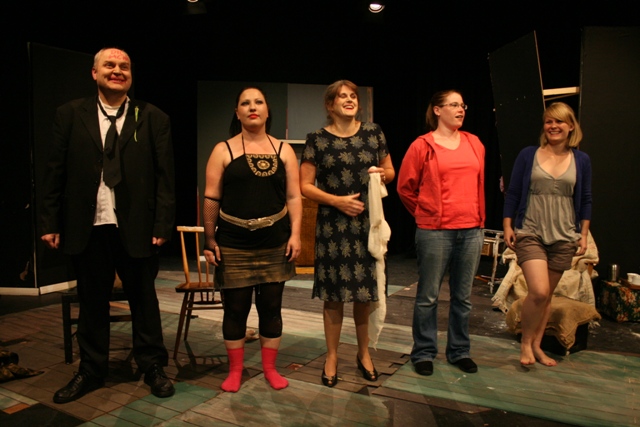The Bench Production
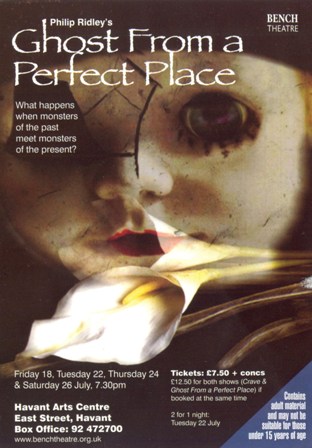
This play was staged at Havant Arts Centre, East Street Havant - Bench Theatre's home since 1977. It was staged as a double-bill in repertory with Crave by Sarah Kane on alternate evenings throughout the 8-night run. Lynda Fleming was nominated for 'Best Amateur Actress' for her portrayal of Rio Sparks in the The News 'Guide' Awards 2008. Martin McBride was nominated for 'Best Amateur Director' and was voted 'Best Newcomer' and Mark Wakeman was nominated for 'Best Amateur Actor' in the The Southern Echo 'Curtain Call' Awards 2008.
Cast
| Travis Flood | Mark Wakeman |
| Torchie Sparks | Megan Green |
| Rio Sparks | Lynda Fleming |
| Miss Sulphur | Claire Lyne |
| Miss Kerosene | Sian Green |
Crew
| Director | Martin McBride |
| Producer | Charley Callaway |
| Stage Manager | John Wilcox |
| Assistant Stage Manager | Melanie Cole |
| Lighting Design | Damon Wakelin |
| Lighting Operation | Jacquie Penrose |
| Sound Design | Darryl Wakelin Damon Wakelin |
| Sound Operation | David Penrose |
| Set Design | Francine Huin-Wah |
| Poster and Flier Design | Martin McBride |
| Front of House Manager | Gina Farmer |
Director's Notes
A critic whose name I cannot recall once referred to Philip Ridley as "a one man cultural revolution" and you'd be a very stubborn soul to disagree. He studied painting at St. Martin's School of Art and started his career as a painter and performance artist. Since then he has become a photographer, poet, award-winning children's author, author of several plays for young adults and has written and directed two full-length films. Annoyingly talented little bugger, ain't he? He has also become one of the most controversial and highly lauded playwrights in the history of theatre.
Despite the many strings to his bow, Ridley has always referred to himself as a storyteller. This is a factor that runs through all of Ridley's work from his children's books to his photography. Ridley is quoted as saying that "Memory, storytelling and morality and my obsession" and although these, again, are ideas that are weaved through all of his plays, they are especially apparent in 'Ghost'. For example, the part storytelling plays in our everyday human nature; the redemptive value of storytelling, the comfort, the communication. How we manipulate our own memory as well as others, how our memories shape who we are, how we use memory as fantasy, comfort and weapon and how all these things are in some way connected to our own morality and humanity. Although these are very universal ideas many authors have written about many times, it's the way Ridley deals with them that make him a compelling, disturbing and utterly humane playwright.
Ridley exploded onto the theatrical scene in the early 90s with his controversial first three plays, which due to their vivid verbal images, graphic nature and violence, were immediately dubbed as sick and perverse. He along with may of his peers, Sarah Kane, Mark Ravenhill to name a couple, were labelled with the tag "in-yer-face theatre". A form many believed to be more about shock tactics than any kind of theatrical of social merit.
It's true that few writers have dug into the dark corners of our times as Ridley, and through his plays he does tread some rather dark paths but his real forte is his ability to find humanity in the most unlikeliest of places. He shows us the worst parts of our troubled times but he never fails to show the humanity, courage and love that gets us through them or to quote someone who puts it far better than me: "There is often a jagged lyricism and a savage beauty about his plays. He is a writer who sees not only the worst but also the best in humanity; he has a genuine faith in the possibility of the idea of redemption. When he puts the audience through a nightmare, it is to show them that the stars will shine."
Rehearsal process
I sincerely wish to avoid jinxing myself at this stage, but I must say I feel as a first-time director I've had it quite easy. That isn't to say we sat about not doing any work, believe me when I say we pored over the story and characters for as much as we could find, of which there was an abundance, but it hardly ever felt like work. This may have come from the fact that we had a fantastic play to work from, but I firmly believe that a large part of it was the actors I managed to snare, for want of a better term. They were generous, patient and never averse to proving me wrong or changing my opinion on something. As well as that, and despite how seriously we took the play and some of the subject matter, I can't remember a rehearsal where one or all of us didn't collapse into fits of giggles. I hope they have enjoyed it as much as I have and I hope that is evident in the performance. Working on this play has been a thoroughly rewarding experience.
And to you, our dear audience, we hope you find something in this play you can take away with you, or think about or are even questioned or provoked by as that is what the best kind of storytelling should do. We wanted to honour the play in this way and we hope you enjoy your experience of the play as we did ours.
Martin McBride
Reviews
The NewsMike Allen
Cheerleaders bring production to life
The problem with Philip Ridley's play is not so much the torture scene that led one senior critic to call the work "pornographic" after its big 1994 premiere, more the fact that the big revelation of the second half is so obvious so early in the first. Or is it that Bench Theatre's production drags so badly at that point?
Either way, director Martin McBride is successful in highlighting the play's dark humour and achieving the poetic quality in past and imagined scenes that are acted out seamlessly within the current action.
The play is essentially about chickens coming home to roost, about emotional as well as physical pain and about self-discovery. Mark Wakeman plays a former East End gangster returning to the scenes of his crimes and encountering two women with particular reasons to be interested in him. Wakeman achieves the ageing and menacing look without quite convincing me he could ever have been a monster. Megan Green twitters nicely as a grandmother who has long forgotten him without ever convincing me she is old enough.
But the production comes to life in a modern-day female gang called the Cheerleaders - and particularly in the person of their leader Rio. The torture is arguably under-played but Lynda Fleming's Rio is both seriously terrifying and in the end seriously moving. The Bench is performing Ghost from a Perfect Place in repertoire with Crave, by Sarah Kane, until Saturday.
The News, 19th July 2008
Southern Daily EchoAnon
Ghost from a Perfect Place
Trekking out to Havant Arts Centre might involve some forward planning, but it will be worth it to see this example of challenging and passionate theatre, written by Philip Ridley.
Travis Flood (Mark Wakeman) returns to Bethnal Green, scene of his thuggish "glory days". He remembers himself as a local Caesar, whose very name inspired fear, but this picture may be as unreliable as his present claims of living in Hollywood luxury, and other characters make equally strenuous efforts to create narratives for themselves.
The pathetic Torchie (Megan Green) shrouds past realities in nostalgia, while her granddaughter (Lynda Fleming) is so scarred she now leads a gang of her own, which she uses to torment the old man. Wakeman's eruptions into violence and the pain Fleming brings to her character create some powerful moments and, though at times more energy is needed, director Martin McBride's debut show is a success.
Southern Daily Echo, 25th July 2008
